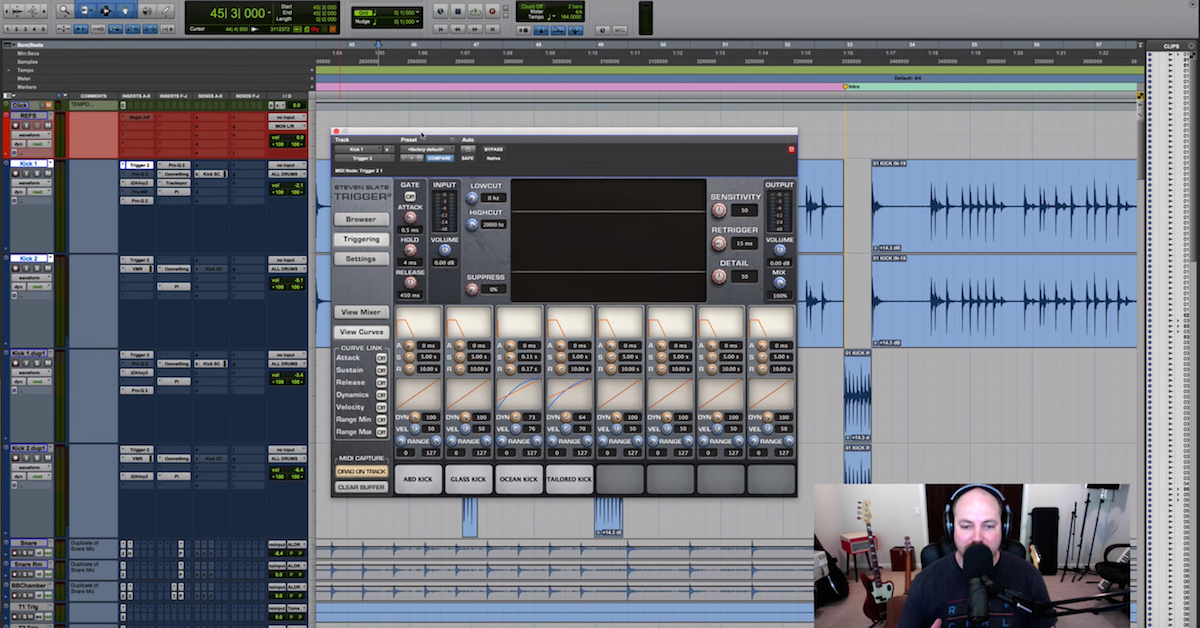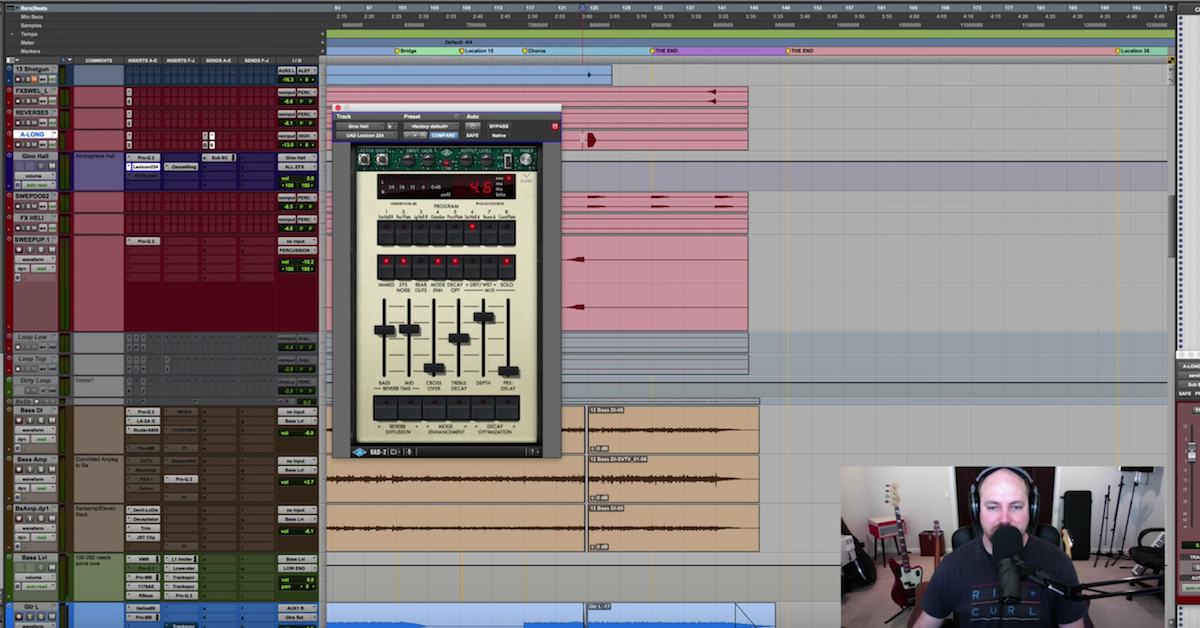5 Essential Skills for the Modern EDM Producer
Article Content
Today, the modern electronic producer has all the resources necessary to put together a top-tier musical production with just a laptop and a pair of headphones or monitors. This is excellent news for all the producers and aspiring producers around the globe.
You can just download all the plugins the pros are using and a couple of high quality sample packs and become a superstar producer with relatively no effort, right?
Unfortunately, in today’s hyper-competitive music industry, the answer is no.
The quantity and quality of music productions has never been higher thanks to the reduced cost of powerful computers and monitors, advanced software and endless amounts of online tutorials. The playing field has been leveled, but this also means that the bar has been raised and success requires production of even higher quality tracks.
In order to succeed in today’s competitive music industry, you need to master a few key skills that can help you drastically improve the quality of your productions.
Here are the five essential skills for the modern electronic producer and how to master them:
Patience
If you’ve ever read interviews from accomplished producers, you’ll see that they’ve taken years of practice and experimentation to get to the level they’re at.
There’s no overnight fix to getting your productions to the quality of your favorite artists.
Success comes from being patient, sticking with the process and not rushing yourself.
It’s important to remember that producing is as much about patience as it is about skill.
There are a couple of common mistakes producers make due to lack of patience:
- Not choosing the right sounds for your track
- Not taking the time to properly mix and master the track
- Not taking the time to make melodies and chords as impactful and emotional as they could potentially be
Lack of patience is one of the main reasons producers plateau and can’t seem to take their productions to the next level.
More often than not, you’re not going to get the mixing right on your first go-around. More often than not, your first mastering effort on a track won’t be to your liking.
Making a high quality track requires patience.
Tips For Mastering Patience
Have a specific sonic goal in mind
Whether you’re trying to get a certain emotion, trying to get your mix to sound a certain way or trying to get your mastering as loud and clean as possible, always have a clear sonic goal in mind and use a reference track. This will keep you on point and focused for what you need to accomplish, thereby giving you the patience needed to reach your desired sonic goal.
Take regular breaks
It happens to all of us — when we can’t get a certain sample or part of the mix to sound right, we just go at it relentlessly until we become frustrated, angry and tired of the song. Before that happens you have to take a break so you you can stay fresh and motivated.
It’s like going to the gym. You never do your entire workout without any breaks. You wouldn’t be able to handle it. You would become too tired, collapse and never want to go back to the gym.
Producing is the same.
Take breaks!
Listen to music
Producing can be extremely frustrating at times.
Being frustrated while producing often leads to negative results.
Anytime you feel a little upset or beaten down during the process, stop what you’re doing and listen to some of your all-time favorite tunes.
Why?
Your all-time favorite tunes are your all-time favorite tunes because you enjoy them. They give you pleasure when you listen to them.
This will transform that negative state you’re in and turn it into a positive one.
Give it a try.
I bet it helps!
Ear Training
This is by far one of the most important skills to master.
**I’m referring to ear training as knowing which sounds complement each other as well as knowing what specific notes, intervals and chords sound like.
While knowing all the latest tips and tricks and having powerful software is important, if you haven’t trained your ears to know which sounds work well together and which sounds don’t, having all the latest knowledge and software will do very little for you.
Does that melody work with that chord progression?
Is that vocal chop contributing anything to the mix as a whole?
Does the timbre of the snare fit with the rest of the drums and overall vibe of the track?
Training your ears is the most important skill to master because the average listeners won’t be concerned with how you EQ’d your kick or what distortion plugin you used. They’re going to notice how all the different sounds comes together and make them feel.
On top of that, record labels would much sooner accept a track that works well musically and has complementary sounds than accept a track that has a perfect mix, but sounds that clash or don’t belong.
Not only is this the most important skill to master, but it’s also the hardest and most time-consuming to master.
If you had to devote your time to only one skill, ear training is the one to master.
Tips For Mastering Ear Training
Actively listen to music
When you listen to music, a great way to improve your ears is to listen actively rather than passively.
What does it mean to “listen actively?”
Simply put, it means consciously taking note of what sounds are in the song you are listening and understanding why they’re there and why they work together.
Is there a lot of reverb and delay in the track?
Why do the lead and the drums work well together?
Was there a certain chord sequence that hit a strong emotion for you?
Paying attention to what works in your favorite tracks and replicating those specific characteristics in your own productions can help train your ears to know what sounds work best in specific situations.
Don’t be lazy with this tip.
Actively listen to music and your productions will begin to quickly improve!
Learn traditional ear training
Learning to identify pitches, intervals, melodies, chords, rhythms and other basic elements of music is an invaluable skill for any producer or musician. Period.
There are plenty of free websites that can help with this.
Here is one of the best free ones out there: Learn Music Theory
Write down specific sonic characteristics
When you’re doing your active listening, it can be extremely beneficial to write down each specific characteristic that you like in a song.
For example, you could write down “cool washed out distorted vocals,” or “square wave heavy bouncy baseline in a minor key.”
Having a list of these specific sonic characteristics will give you a roadmap with plenty of routes to take for your next song without feeling like you’ve just copied the song you listened to.
This will help you take parts of what you like in different songs, and translate those characteristics into your own music.
Not only will this improve your productions, but it will help build your own signature sound.
Self-Assessment
To many of us, our bodies of musical work are prized possessions. We spend endless amounts of time on them and deeply care about the outcome of each project.
This is natural, but it can blind some people to the truth behind their music.
Like I said before, just because you have spent countless hours on a track doesn’t mean it’s going to come out as an all-star production.
You need to be honest about your music and the level of quality your productions are currently at.
This is the only way you’ll truly be able to progress.
Tips for Mastering Self-Assessment
Ask other producers
One surefire to get an honest and reliable answer on the current level of your music is to ask other producers that are at a higher level for feedback.
Having another set of trained ears listening to your tracks and giving you feedback will help you quickly pinpoint exactly what needs to be improved in your productions.
Compare your music
When comparing your music, it can be easy to get discouraged as your music will probably not be up to the level of production that you’re striving for.
Keep your cool and trust that with time and focused effort, you’ll eventually have the skills to make the music you know you’re capable of creating.
Organization
I can’t stress enough the importance of organization when it comes to music production.
The amount of samples and presets you have on your hard drive, tracks created during sessions, and all the various projects can really add up over time.
There is no possible way for you to get the most out of your content if you don’t even know that it exists.
Tips For Mastering Organization
Organize your samples
This is extremely time-consuming, but is the biggest workflow hack of them all. Take the time to organize your samples and you’ll become a better producer.
I’ll bet anything on that.
Organize your plugins
Just like our samples, plugins start to pile up on our computer and we quickly forget which ones we have.
Having an organized list of all your EQs, compressors, reverbs, etc., is invaluable for honing in on a desired sound. You’ll have all the colors you own neatly organized in front of you so you can make the right decision instead of looking through a random list of all your plugins. Software like Auganizer makes organizing your plugins a cinch.
If you’re using Ableton, you can simply group the plugin in an audio effects rack or instrument rack depending on the type of plugin, save the rack, and file it away in a labeled folder.
Want an entire sample and preset library for FREE? Download here.
Experimentation
The evolution of your sound is integral to your success as a producer.
Whether you’re just starting out as a producer and looking to evolve your sound into a professional product, or you’re an established pro looking to take your sound into uncharted territory, experimentation is key!
Tips for Mastering Experimentation
Use new plugins
While it’s important to have a dedicated set of tools that you know inside and out, it’s equally as important to try out new plugins.
This will help you break out of your normal routine and think about your sounds differently and ultimately get a different sonic result.
A great way to do this is to add one new plugin into the mix every song you create.
Download samples that you normally wouldn’t
By downloading samples that aren’t typical to the genre you’re working in, you give yourself the greatest chance to expand on an already established genre and put your own unique twist on it.
Working on a Future Bass track? Download some Saxophones.
You have a drum and bass track in the works? Download some rhodes samples.
Break all the rules
Making music is a creative endeavor.
Learn the basic rules of music production and then break all of them.
This is the only way you’ll grow.
Keep in mind that most of your experimentation may not turn out the way you’d like or be something that you can use.
It’s okay.
This is going to happen.
Stay with it and you’ll be rewarded for your creative efforts by developing techniques and unique sounds that no one has ever heard before.
Use a guitar amp on your pluck.
Use reverb where you’re “not supposed to.”
Think outside the box and build your own set of rules through experimenting.





